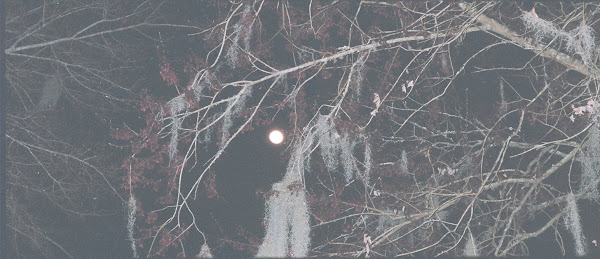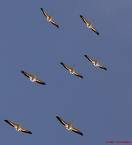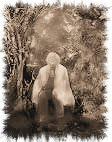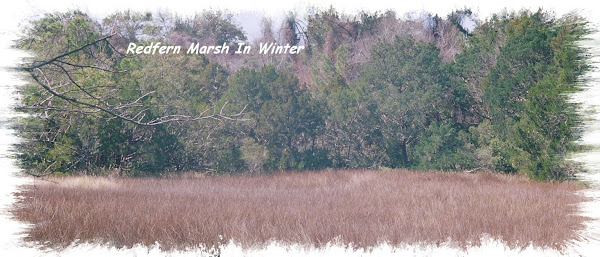From Wikipedia, the free encyclopedia
"Richard Alpert" redirects here. For the fictional character from Lost, see Richard Alpert (Lost).
For other uses, see Ram Dass (disambiguation).
| Ram Dass | |
|---|---|
 Zalman Schachter-Shalomi and Ram Dass in February of 2008 | |
| Born | April 6, 1931 Boston, United States |
| Nationality | American |
| Occupation | Spiritual teacher |
| Religion | Jewish (until 1967), Hindu (since 1967) |
Contents[hide] |
[edit] Biography
[edit] Youth and college
Alpert was born to a prominent Jewish family in Newton, Massachusetts. His father, George Alpert, was one of the most influential lawyers in the Boston area and president of the New York, New Haven and Hartford Railroad, as well as one of the leading founders of Brandeis University and the Albert Einstein College of Medicine. The youngest of three boys, Richard as a child was described as being engaging and loved by all—the family mascot. He started out his high school career at the Williston Northampton School graduating in 1948 as a part of the Cum Laude association. He then went on to receive a Bachelor of Arts degree from Tufts University, master's degree from Wesleyan University and doctorate (in psychology) from Stanford University.[edit] Harvard professorship and the Timothy Leary/Richard Alpert research
After returning from a visiting professorship at the University of California, Berkeley, Alpert accepted a permanent position at Harvard, where he worked with the Social Relations Department, the Psychology Department, the Graduate School of Education, and the Health Service, where he was a therapist. He was also awarded research contracts with Yale and Stanford. However, perhaps most notable was the work he was doing with his close friend and associate, Dr. Timothy Leary.Having only recently obtained his pilot's license, Alpert flew his private plane to Cuernavaca, Mexico, where Leary first introduced him to teonanácatl, the Magic Mushrooms of Mexico. By the time Alpert made it back to America, Leary had already consulted with Aldous Huxley, who was visiting at M.I.T., and through Huxley and a number of graduate students they were able to get in touch with Sandoz, which had produced a synthetic component of ergot rye fungus called LSD. Alpert and Leary brought a test batch of both substances back to Harvard, where they conducted the Harvard Psilocybin Project and experimented with LSD relatively privately.
Leary and Alpert were formally dismissed from the university in 1963. According to Harvard President Nathan M. Pusey, Leary was dismissed for leaving Cambridge and his classes without permission or notice, and Alpert for allegedly giving psilocybin to an undergraduate.[1] By this time, however, Alpert had already become disillusioned with academia and even described himself as feeling trapped in a meaningless game, and Leary had already left the university some weeks earlier.
The two soon relocated and continued their experiments unsupervised from a private mansion in Millbrook, New York, owned by Billy Hitchcock, an heir to the Mellon fortune. Famous poets, musicians and intellectuals of the time, such as Allen Ginsberg, Maynard Ferguson, the Grateful Dead, Marshall McLuhan and Ken Kesey, came from across the country to be part of what was going on there. Although they remained life-long friends, Leary and Alpert eventually began to part ways spiritually and philosophically as Leary continued to spread his mantra of "turn on, tune in, drop out," while Alpert increasingly found his purpose in the Hindu ethic of serving others.
[edit] From Dr. Richard Alpert to Baba Ram Dass
In 1967 Alpert traveled to India, where he met the American spiritual seeker Bhagavan Das. As he guided Alpert barefoot from temple to temple, Bhagavan Das began teaching him basic mantras and asanas, as well as how to work with beads. After a few months, Bhagavan Das led Alpert to his guru, Neem Karoli Baba, or as he is better known in the West, Maharaj-ji.Maharaj-ji soon became Alpert's guru and gave him the name "Ram Dass," which means "servant of God." Under the guidance of Maharaj-ji, Ram Dass was instructed to receive teaching from Hari Dass Baba, who taught in silence using only a chalkboard. While in India, Ram Dass also corresponded with Meher Baba; however, he remained primarily focused on the teaching of Hari Dass Baba.
Among other things, Hari Dass Baba trained Ram Dass in raja yoga and ahimsa. It was these life-changing experiences in India that inspired Ram Dass to write the contemporary spiritual classic, Remember Be Here Now, in which he teaches that everyone is a manifestation of God and that every moment is of infinite significance.
[edit] Back in the West to spread the message
After his return to the United States in 1969, Alpert founded several organizations dedicated to expanding spiritual awareness and promoting spiritual growth, including the Hanuman Foundation. Since then he has embraced a wide variety of spiritual traditions and practices, including guru kripa (grace of the guru); bhakti yoga focused on the Hindu spiritual deva Hanuman; meditation in various schools of Buddhism such as Theravada and Mahayana (including Tibetan and Zen); karma yoga; and Jewish studies.
In February 1997, Dass suffered a stroke which left him with expressive aphasia. However, he interprets his stroke as an act of grace and continues to travel giving lectures, as his health permits. When asked if he could sum up his life's message Ram Dass replied, "I help people as a way to work on myself, and I work on myself to help people... To me, that's what the emerging game is all about." He was awarded the Peace Abbey Courage of Conscience Award in August 1991.[2]
Ram Dass is a vegetarian, and has also acknowledged his bisexuality.[3] In the 1990s, he became more forthcoming about sexuality [4] while avoiding labels and pointing out that who we are "isn't gay, and it's not not-gay, and it's not anything—it's just awareness."[5]
[edit] Film
Ram Dass Fierce Grace is a 2002 American biographical film, directed by Micky Lemle. It tells the story of Dr. Richard Alpert's transformation from Harvard Psychology Professor to spiritual student/devotee and back again to teacher in spite of his debilitating stroke. It was named by Newsweek as one of the Top Five Non-fiction Films of 2002.[edit] Love Serve Remember Foundation
The 'Love Serve Remember Foundation' was organized to preserve and continue the teachings of Neem Karoli Baba and Ram Dass, and to work with Ram Dass on his writings and other future plans.[edit] Works
[edit] Books
- Identification and Child Rearing (with R. Sears and L. Rau) (1962) Stanford University Press
- The Psychedelic Experience: A Manual Based on the Tibetan Book of the Dead (with Timothy Leary and Ralph Metzner) (1964) ISBN 0-8065-1652-6
- LSD (with Sidney Cohen) (1966) ISBN 0-453-00120-3
- Remember Be Here Now (1971) ISBN 0-517-54305-2
- Doing Your Own Being (1973)
- The Only Dance There Is (1974) ISBN 0-385-08413-7
- Grist for the Mill (with Steven Levine) (1977) ISBN 0-89087-499-9
- Journey of Awakening: A Meditator's Guidebook (1978) ISBN 0-553-28572-6
- Miracle of Love: Stories about Neem Karoli Baba (1978) ISBN 0-525-47611-3
- How Can I Help? Stories and Reflections on Service (with Paul Gorman) (1985) ISBN 0-394-72947-1
- Compassion in Action: Setting Out on the Path of Service (with Mirabai Bush) (1991) ISBN 0-517-57635-X
- Still Here: Embracing Aging, Changing and Dying (2000) ISBN 1-57322-871-0
- Paths to God: Living The Bhagavad Gita (2004) ISBN 1-4000-5403-6
[edit] Recording
- Love Serve Remember (1973), a six-album set of teachings, data, and spiritual songs (ZBS Foundation) (put on MP3 format, 2008)
- The Psychedelic Experience: A Manual Based on the Tibetan Book of the Dead (with Richard Alpert & Ralph Metzner) (1966)(reissued on CD in 2003 by Folkways)
- "Here We All Are", a 3-LP set recorded live in Vancouver, BC in the summer of 1969.
[edit] Films
- Ram Dass Fierce Grace (a 2001 biographical documentary about Ram Dass by Lemle Productions)
[edit] References
| This article cites its sources but does not provide page references. You can help to improve it by introducing citations that are more precise. |
- ^ Russin, J. S., & Weil, A. T. (1963, May 28). The Crimson takes Leary, Alpert to task. [Editorial]. Harvard Crimson. Retrieved from http://www.thecrimson.com/article.aspx?ref=495775. (¶ 7)
- ^ The Peace Abbey Courage of Conscience Recipients List
- ^ VegetarianUSA - Exclusive Interview with Ram Dass
- ^ OutSmart - This Issue
- ^ Gay Today at Badpuppy
[edit] External links
| Wikimedia Commons has media related to: Ram Dass |
- Official Ram Dass Website The site also includes data about the 'Love Serve Remember Foundation'.
- Ram Dass Tapes Library
- The Living/Dying Project (an outgrowth of the Hanuman foundation, which was created by Ram Dass)
- Ram Dass co-founded the Seva Foundation
- Ram Dass, Fierce Grace at the Internet Movie Database
- Works by or about Ram Dass in libraries (WorldCat catalog)
| ||
| ||
Categories: American psychologists | American spiritual writers | American metaphysics writers | Jewish American writers | Dharmic writers | Psychedelic drug advocates | Psychedelic researchers | Harvard University faculty | American Hindus | University of California, Berkeley faculty | Stanford University alumni | Wesleyan University alumni | Tufts University alumni | People from Boston, Massachusetts | Converts to Hinduism | Bisexual writers | 1931 births | Living people
Dear Readers, please do not assume that you understand anything you read on this blog.(;-)


.jpg)

.jpg)
.jpg)





